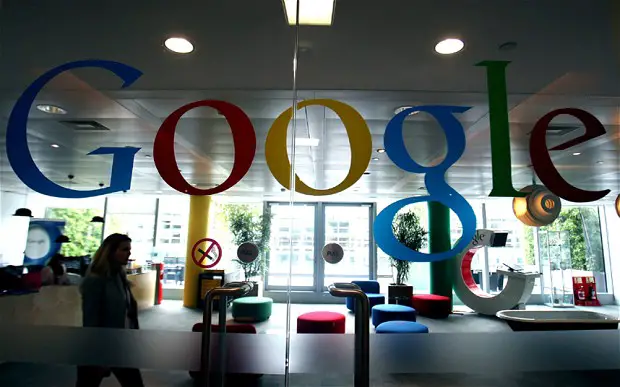 Don’t look now, but the European Commission — a group that regulates commerce in the EU — has opened antitrust investigations into Google. The company is being charged with allegations of antitrust in areas of search and mobile operating systems.
Don’t look now, but the European Commission — a group that regulates commerce in the EU — has opened antitrust investigations into Google. The company is being charged with allegations of antitrust in areas of search and mobile operating systems.
To summarize, the European Commission feels Google unfairly promotes their online shopping comparison tool over that of the competition’s, noting that Google’s tool tends to have more prominence and regularity in showing up when consumers search for products to buy online. For mobile, their concern is with Google’s large stable of applications that are pre-installed on each Android device licensed to use the Google Play ecosystem.
Before you start chastising the European Commission, it’s important to remember that this is only the start of an investigation, and not necessarily a hard ruling process that would ultimately lead to some sort of action taken against Google. Call it the information gathering stage, if you will. Google and the European Commission will engage in discussions about the antitrust concerns and each side will be given a chance to provide their side of the story.
Speaking to that note, Google has already prepared their defense plan, and thanks to Re/Code we’ve gotten a look at the internal memo sent to their employees. In it, Google contends that they’re confident they’ll be able to convince the European Commission that they do not use their search engine to push their products above others, nor does it inadvertently stifle any sort of competition.
They note that online storefronts and marketplaces such as Amazon, eBay and Expedia have just as much visibility as anything else, and that these merchants receive as much, if not far more, visitors than Google Shopping in many EU countries. Google also won’t be shy about noting that there are other search engines to use out there, such as Bing or Yahoo, and that people are just as free to use those as anything else.
For mobile, Google’s stance will be to note that they don’t stop anyone from making an app that replicates any of their services and letting it live in Google Play.
Indeed, users are free to download and use any app they may well please, which is in stark contrast to the way Apple used to do things in the iOS App Store. Google will also point to the fact that despite the terms of Google’s licenses to have Google apps and services installed on Google Play-enabled Android devices, manufacturers are free to pre-install apps and services from other companies (such as Samsung including Microsoft services on the Samsung Galaxy S6 and Samsung Galaxy S6 Edge).
That raises the question: has Google even done anything wrong? As much as I support busting anti-competitive behavior, it seems to me that the European Commission may be reaching a bit far to suggest Google is violating any antitrust regulations.
It’s not their fault that they’ve built products that are great enough for a majority of the world’s population to use, and it’s ridiculous to suggest they can’t use what they’ve built to promote the other great products and services they provide. It only becomes an issue when they effectively block others from thriving, but from our standpoint it doesn’t appear they’ve done that in any way, shape or form.
Google isn’t the first company to be hit by the large hammers of antitrust regulators, and they won’t be the last. Apple, Microsoft and many others have all had to deal with similar investigations and rulings.
Microsoft lost a bit over $3 billion to fines for their bundling of Windows Media Player in Windows over a decade ago (which is why many of you now have to download it separately on new installations). On the flip side, investigations into Apple’s iTunes store in 2007 (particularly, the music store in the UK) ultimately concluded with Apple receiving no charge.
Whichever side of that spectrum Google ultimately ends up on remains to be determined, but we at least know there’s a chance for this thing to go either way. The case is sure to be examined just as closely as any other major antitrust investigation, and we wouldn’t be surprised if it took a great deal of time (we’re talking more than just a couple of years) before any hard decision is made one way or the other.
In the meantime, let us know if you think the European Commission has any case at all by dropping a comment below.
[via European Commission]














Microsoft IE sends its regards…
Now Microsoft is forcing preinstalled apps for Windows and gettign hardware oems to install it for them.
chi lavora con Microsoft è considerato una frode
Each company should allow users to uninstall the built in apps, including of Google. All can be downloaded from the Play Store anyway.
It’s their product – their choice. Market decides. We’ve seen less bloatware lately because more people have voiced their concerns. It shouldn’t be regulated.
wouldn’t you be prefer to have this ability?
Yes, but if I owned a tech company, I would be pissed if governments told me what I could and could not do with the product I sell.
Well I’m not the government, but I would still want to have this law. Can’t be bad for any user.
Companies would still be allowed to put their apps, to promote things and make deals with other companies what could be bundled. But, for the users’ own good, they should have the choice to get them removed if he doesn’t want them.
In terms of preloaded app, I do agree with you. But that the EC is trying to regulate what Google can list in their search results is way too much control.
Well, I talked about preloaded apps. The search issue is something they should solve on their own. :)
Wut?? Apple doesn’t have to but Google does?? Makes me want to throw things at people. How STUPID.
The difference is that Google owns the most popular search engine that can be used to lead people to their store. Apple doesn’t. This isn’t just about apps, games, and media. It’s their shopping site.
However, I don’t think there’s a real issue. I find Amazon usually ends up on top of most merchandise searches I do.
yup
Pretty much every time yes.
Agreed, Amazon or Target seem to be my top results on nearly every product search.
Microsoft got fined for preloading IE that was uninstallable. What about Apple with Macs/iDevices and Safari? Same thing.
Until I read this article I didn’t know there was a Google Shopping.
Why aren’t they going after Apple like they did with Microsoft in the 90s? Very many similarities. The EC is full of crap. If I launch a product, I should be able to promote my own products within as much as I want. After all, it is my product. The market would decide whether the public likes it or not.
The EU is reaching way too hard here. Il
I like that the European Union is being vigilant to keep the marketplace fair. However, if anyone deserves a look, it’s apple. They need the snot kicked out of them. And EA sports with their exclusive nfl license.
Fair? There’s that word again. The only thing I see is the EU being statist pricks per usual. Google should suspend all of it’s services in Europe until the EU is abolished. How about that?